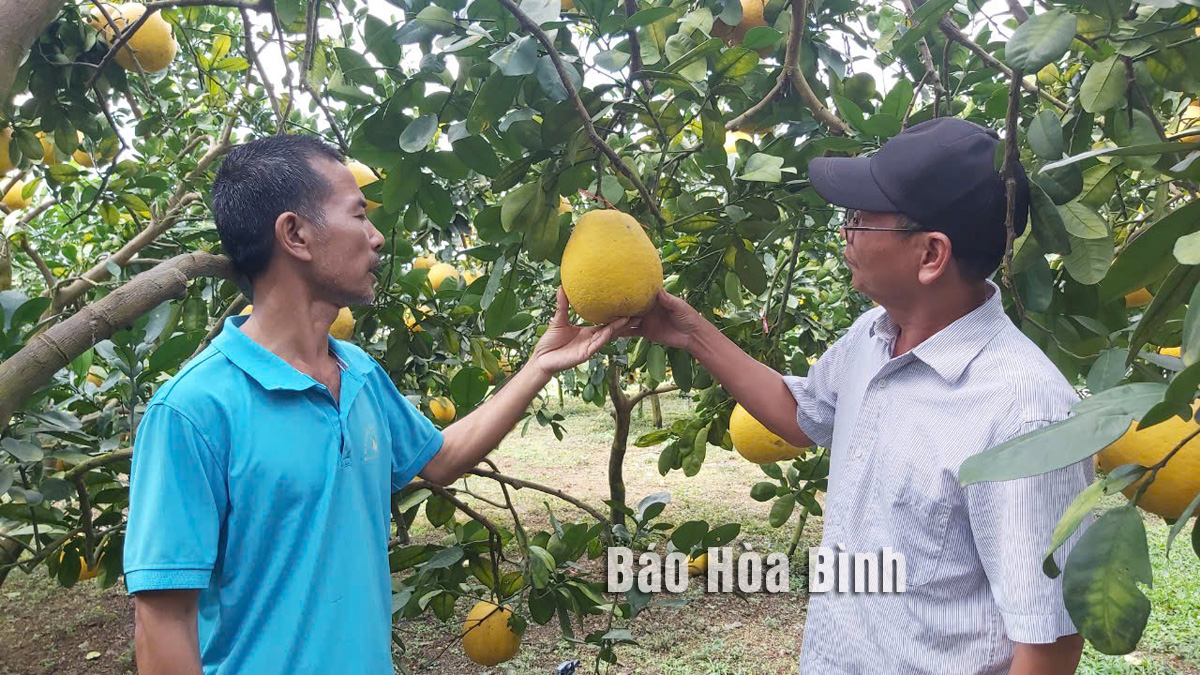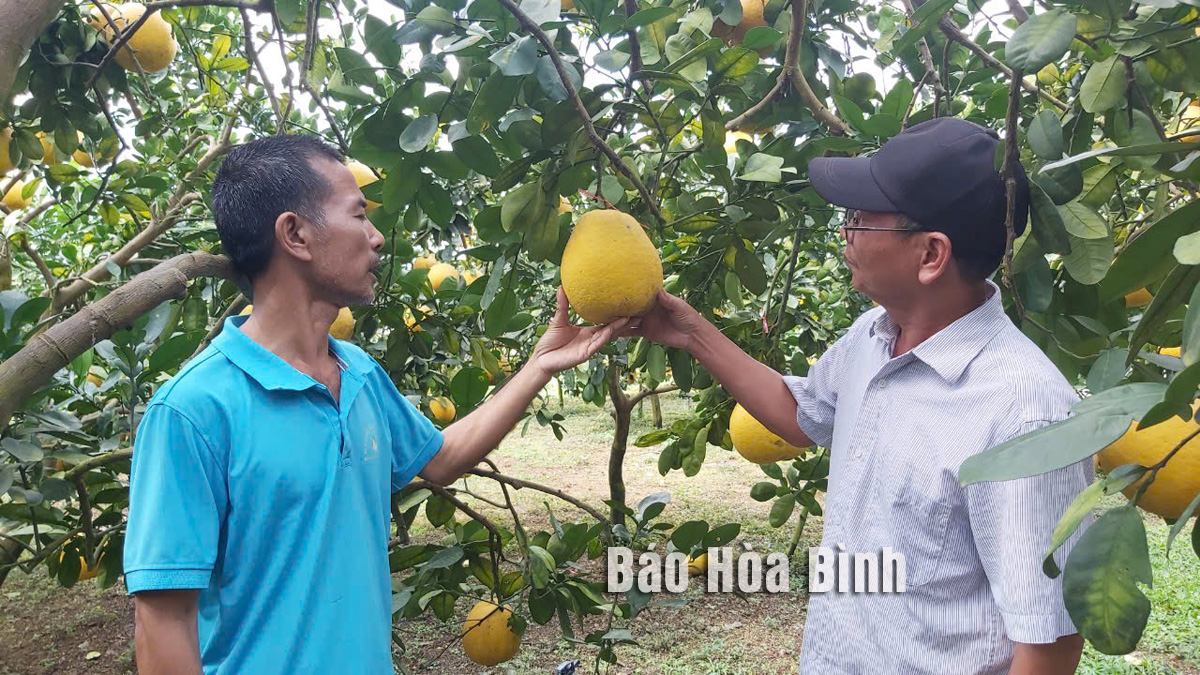
Implementing the "One Commune - One Product" (OCOP) programme, the People's Committee of Yen Thuy district in Hoa Binh province has directed local communes and towns to prioritise the restructuring of crop production towards enhancing quality and efficiency.
Dien
grapefruit of the Dai Dong Cooperative in Ngoc Luong commune, Yen Thuy
district, is an OCOP product that is eligible for export to the European
market.
The district encouraged the development of various production forms and
enhanced management capacity for businesses, cooperatives, and production
households of agricultural, non-agricultural products, and services along the
value chain. This aims to harness creativity and internal strength to increase
income and improve living standards of local people.
Notably, the district has piloted the model on developing medicinal OCOP
products associated with local raw material areas in Yen Tri commune.
The pilot project with
a total investment of 25.16 billion VND has provided financial support for
developing production and branding of the district's herbal products.
As of the end of 2024, the district has standardised 23 OCOP products,
including 4 four-star products and 19 three-star products, exceeding the
provincial target of 12 OCOP products for the 2021-2025 period.
Currently, the OCOP
products are being maintained and expanded by their producers and cooperatives,
contributing to enhancing the value and brand of local agricultural products,
including Dien grapefruit in Dai Dong commune, black cordyceps in Yen Thuy,
green tea buds in Yen Thuy, and pickled shallots.
The district aims to have at least one more OCOP product rated three stars or
higher in 2025, with each commune and town having at least one product.
To develop OCOP
products and create a distinct brand for the locality, Yen Thuy district will
continue to promote recognised OCOP products, upgrade their ratings, and
develop other OCOP products.
Efforts will be
concentrated on implementing agricultural restructuring, developing the
district's advantageous products to better meet market demand and food safety
requirements; linking production with promotion and branding. The district will
also support the development of cooperative economy and cooperatives in
agriculture and rural areas, promote linkage among authorities, schools,
farmers and enterprises.
It will create favourable
conditions for collectives and individuals in promoting and expanding markets
for local specialty products through digital platforms.
According to data from the Hoa Binh Provincial Party Committee, the industrial production index for the first six months of 2025 is estimated to have increased by 20% compared to the same period last year. This marks the highest year-on-year growth rate for this period since 2020.
In the first six months of 2025, Hoa Binh province’s export turnover was estimated at 1.145 billion USD, marking an 18.11% increase compared to the same period in 2024. Import turnover was estimated at $ 804 million, a 17.15% increase, which helped the province maintain a positive trade balance.
The lives of the ethnic minority farmers in Tan Lac district have gradually improved thanks to the new directions in agricultural production. This is a testament to the collective strength fostered through the professional associations and groups implemented by various levels of the district’s Farmers’ Union.
With the motto the "product quality comes first,” after nearly one year of establishment and operation, Muong village’s Clean Food Agricultural and Commercial Cooperative, located in Cau Hamlet, Hung Son Commune (Kim Boi district), has launched reputable, high-quality agricultural products to the market that are well-received by consumers. The products such as Muong village’s pork sausage, salt-cured chicken, and salt-cured pork hocks have gradually carved out a place in the market and they are on the path to obtaining the OCOP certification.
In the past, the phrase "bumper harvest, rock-bottom prices" was a familiar refrain for Vietnamese farmers engaged in fragmented, small-scale agriculture. But today, a new spirit is emerging across rural areas of Hoa Binh province - one of collaboration, organisation, and collective economic models that provide a stable foundation for production.
Maintaining growing area codes and packing facility codes in accordance with regulations is a mandatory requirement for agricultural products to be eligible for export. Recently, the Department of Agriculture and Environment of Hoa Binh province has intensified technical supervision of designated farming areas and packing facilities to safeguard the "green passport" that enables its products to access international markets.



